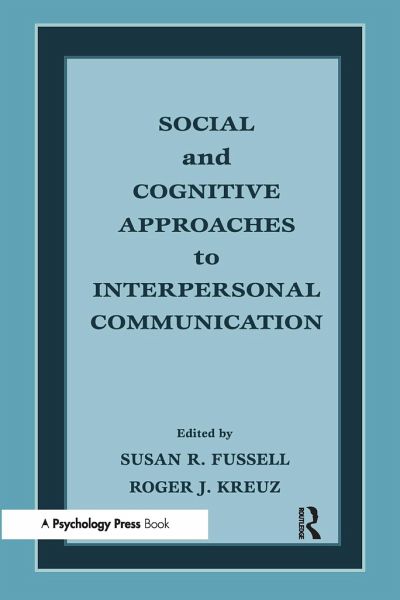
Social and Cognitive Approaches to Interpersonal Communication
Versandkostenfrei!
Versandfertig in 1-2 Wochen
63,99 €
inkl. MwSt.
Weitere Ausgaben:

PAYBACK Punkte
32 °P sammeln!
Influenced by fields other than psychology (ordinary language philosophy, conversation analysis and sociolinguistics), the research presented in this volume can be viewed as an effort to empirically test ideas and findings from other fields in an experimentally rigorous fashion.
This book blends cognitive and social psychological perspectives on language use in a broad yet rigorous manner that will illuminate the area for researchers and students alike. For cognitive & social psychologists, (psycho)linguists, and communication.<














